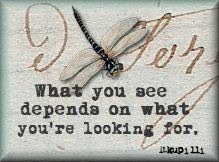I recently attended a visual journal workshop at Catalyst in Westminster, California that featured Kari Foteff teaching multi media techniques on Strathmore's new Multi Media Visual Journals. The class was offered by the Art Supply Warehouse and in conjunction with the fine folks at Strathmore.
The mixed media visual journal from Strathmore solves the problem of pages that warp under the weight of different types of media. The medium-weight paper was specifically created for both wet and dry media applications. Strathmore offers several papers of different weights and types of paper (Vellum Finish, Bristol, Drawing, Mixed Media, and Water Color) in these journals.
The manufacturer claims that folks can use water color, acrylic paint, pen, ink, pencil, crayons, charcoals, markers, collage materials, and even some of the fun texture mediums that art stores carry in these journals. To give you a better idea of what types of mediums and materials that can be used on these pages, I have uploaded some fun examples of techniques and materials that can be used to decorate these journal pages.
Example 1: Strathmore Mixed Media journal pages painted with Airbrush.
Example 2: Pan Pastels and Stencil used on the journal pages.
Example 3: Watercolor color with pen and ink.
Example 4: Letraset AquaMarkers water-based twin-tips..
Example 5: Golden's Acrylics and hot sticks.
Example 6: Acrylic paint and colored pencil.
Example 7: Strathmore Mixed Media Visual Journal with acrylics, mulit media and ephemera.
Example 8: Acrylics, Gesso, Golds liquid medium and various ephemera
Example 9: Liquid Acrylic Artist Ink and calligraphy (paper was smooth enough to utilize modern calligraphy techniques effectively).
Example 10: Card stock, liquid masking medium, water color, and crayons.
Example 11: Pigment Ink Marker
Additionally, this journal has wire binding which makes it easier to lay flat while you are working.
The workshop was a lot of fun and had a "Mardi Gras" theme. I wanted to share with our readers some pictures from our workshop and the finished pages made by various students using the materials they had a available to decorate our journal pages.
Example A:
Example B:
Example C:
It was fun to see how each person used the same theme and materials to create a layout that was reflective of their own style and interpretation.
If you are new to the mixed media visual journaling trend, it is mostly the use of different media to reflect the attitudes, values, experiences, and/or thoughts of the person journaling. It can also include visual images and the written thoughts. There are many ways to do visual journaling and/or multi media journaling. A search on Google, YouTube, and other online sources can provide you with more in depth information on this art form. You can also attend a class at a local art store or find books on the topic. If you want to learn more and cannot find a local source, Strathmore offers a free online course that you can register for. They have a great one called "Doodles Unleashed: Mixed Media Techniques" given by Traci Bautista that you can learn some great techniques from, she also has a new book coming out on a similar topic.
Pros
- These journals come in three sizes with a choice of several different types of papers.
- The paper is thick and can hold up well to a variety of media.
- The books are wire bound which allows for them to be opened flat while working on the pages.
Note: The price of the books is higher than some lesser quality books, however there are great deals to be found online and at local art supply stores and I found the quality to be worth the expense.
The journal papers can buckle or warp if you do not allow the pages to dry properly before closing the book and/or storing it away. I also recommend using pallet paper between the pages until the ephemera, glues, media have set. It will keep the pages from getting stuck to each other. Strathmore offers these books with various types of papers, so be sure to read the label to make sure you are getting the type of paper you want. By picking the right paper before beginning your journaling project, you will not have any unexpected issues or disappointments.
I would love to hear from about your favorite journaling techniques and supplies. Please leave a comment and share your tips.




















Thank you for this review. I have just bought one of these journals and I'm looking forward to experimenting with it. Your review has given me a heap of ideas.
ReplyDelete